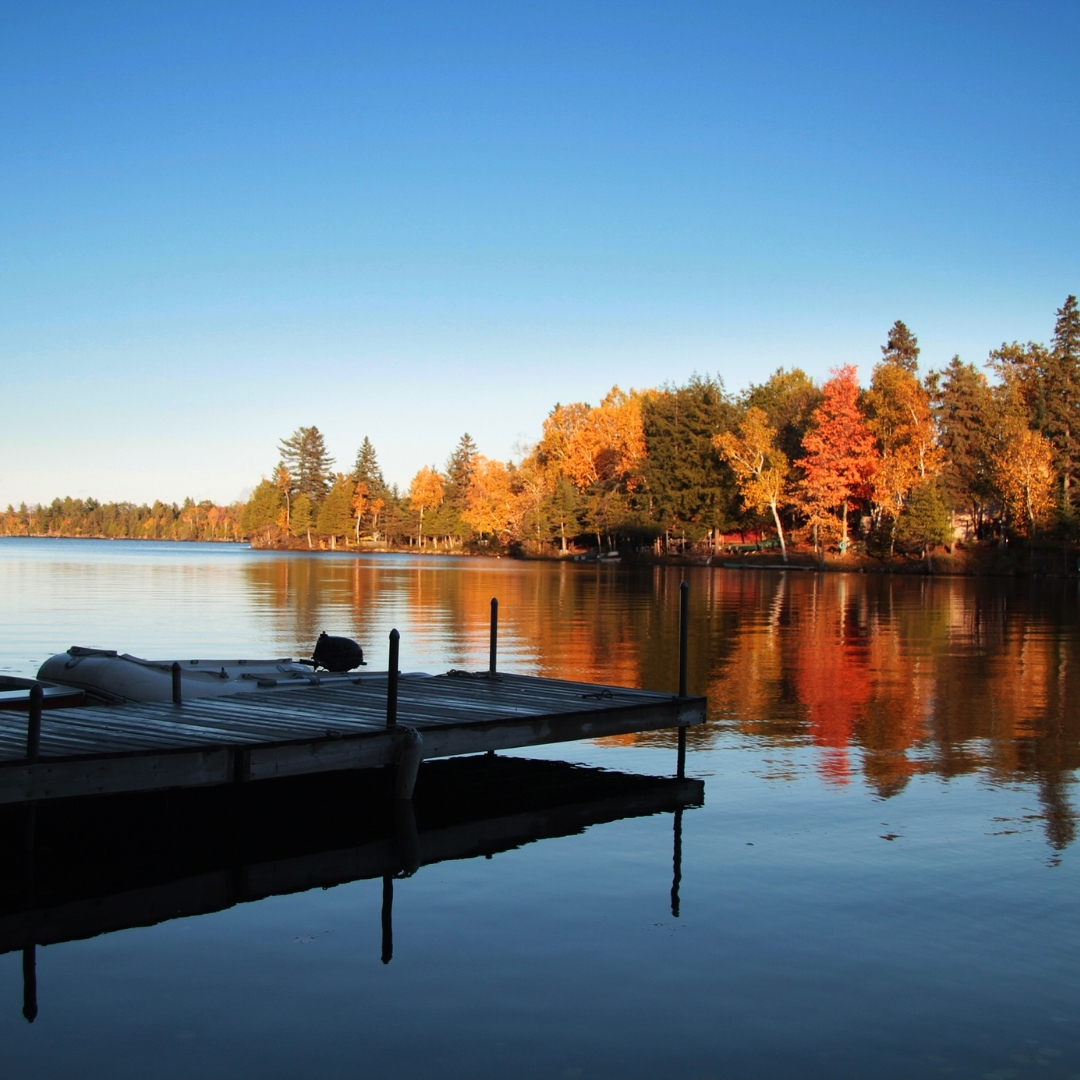Cottage season is coming to a close. Here’s a few tasks to check off your list as you get ready to winterize your home away from home.
- Inspect your septic tank. If your cottage has a septic system, be sure to follow the manufacturer’s maintenance guidelines. If your system is due for an inspection, call in a professional to make sure it’s functioning properly before you close up to avoid any surprises in the spring.
- Keep the sump pump pumping. If your cottage has a sump pump, make sure it’s working properly before you leave or you could experience flooding when the snow starts to melt.
- Drain your pipes. Turning off the water and draining your pipes and other water containers will help prevent them from freezing (and possibly bursting).
- Clean your eaves. Clogged eavestroughs can cause water to back up under your shingles, leading to a leaky roof. Once the trees have lost all their leaves, it’s a good idea to clean out your gutters so rain and melting snow can flow freely.
- Check your roof. Snow buildup over the winter can cause a roof to leak or even cave in. Replace broken or missing shingles before the winter weather sets in.
- Keep rodents and other pests outdoors. Check for any opening that small animals can squeeze through to access the interior of your cottage. Steel wool and other caps and covers can help stop unwanted visitors.
- Unplug major appliances. Turning off your entire power supply might not be the best option as it will stop your sump pump, exterior lighting, and alarm system from working, but unplugging larger appliances or turning off the power to these appliances can help prevent electrical fires and other issues.
- Turn the heating down (or off). If your cottage has a furnace, consider turning the thermostat to a maintenance temperature to prevent frost build-up. If you choose to turn it off entirely it can certainly help to save on the energy bill but only do this if you have properly prepared your pipes to prevent freezing. If you opt to turn the heat off, be sure to turn the gas off, too. If you use space heaters, turn off their power supply on your electrical panel.
- Get rid of fire hazards. Loose paper products like newspapers, magazines and books, old rags, chemicals and other items can easily catch or spread fire. Pack them up and remove them to help prevent that from happening.
- Clean out the fridge and cupboards. Food can attract insects and animals. It’s always wise to pack up all food (even dry and canned goods) and take it home with you at the end of the season.
Before you lock the doors and head home, make sure you check your seasonal property insurance policy or talk to your broker, as your insurance company may require you to take other precautions, such as checking in on your property at certain time intervals or installing a monitored alarm system.

